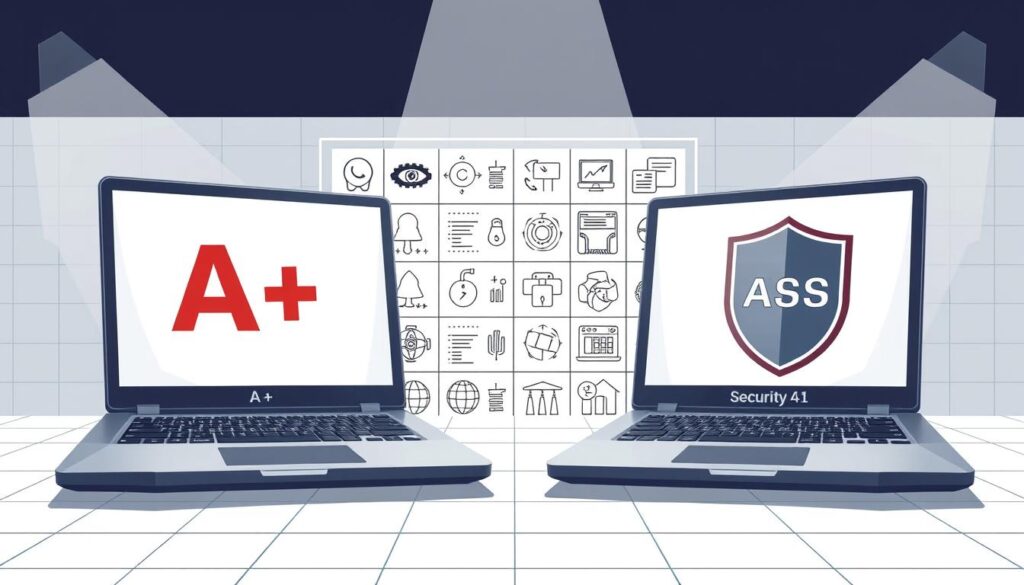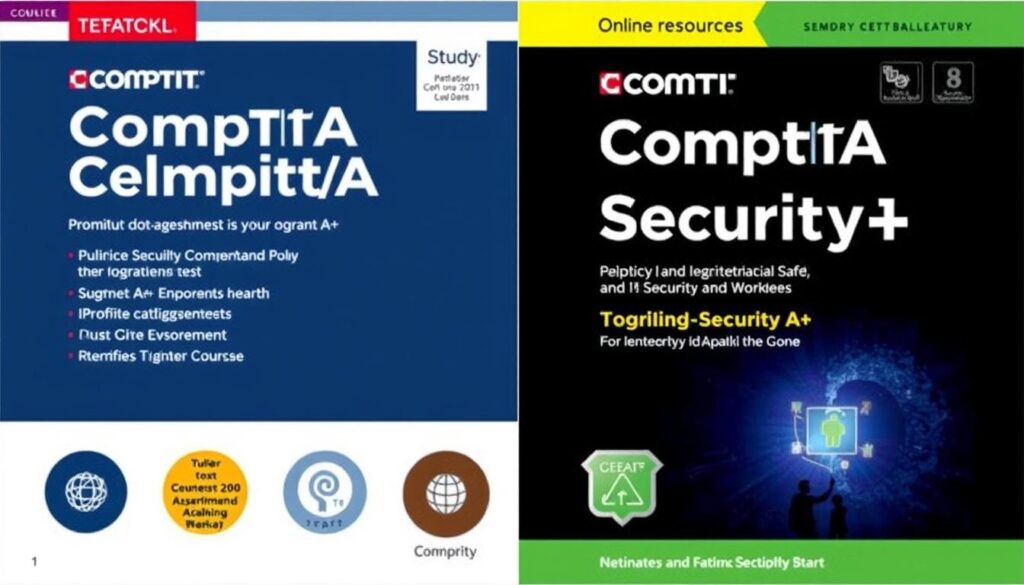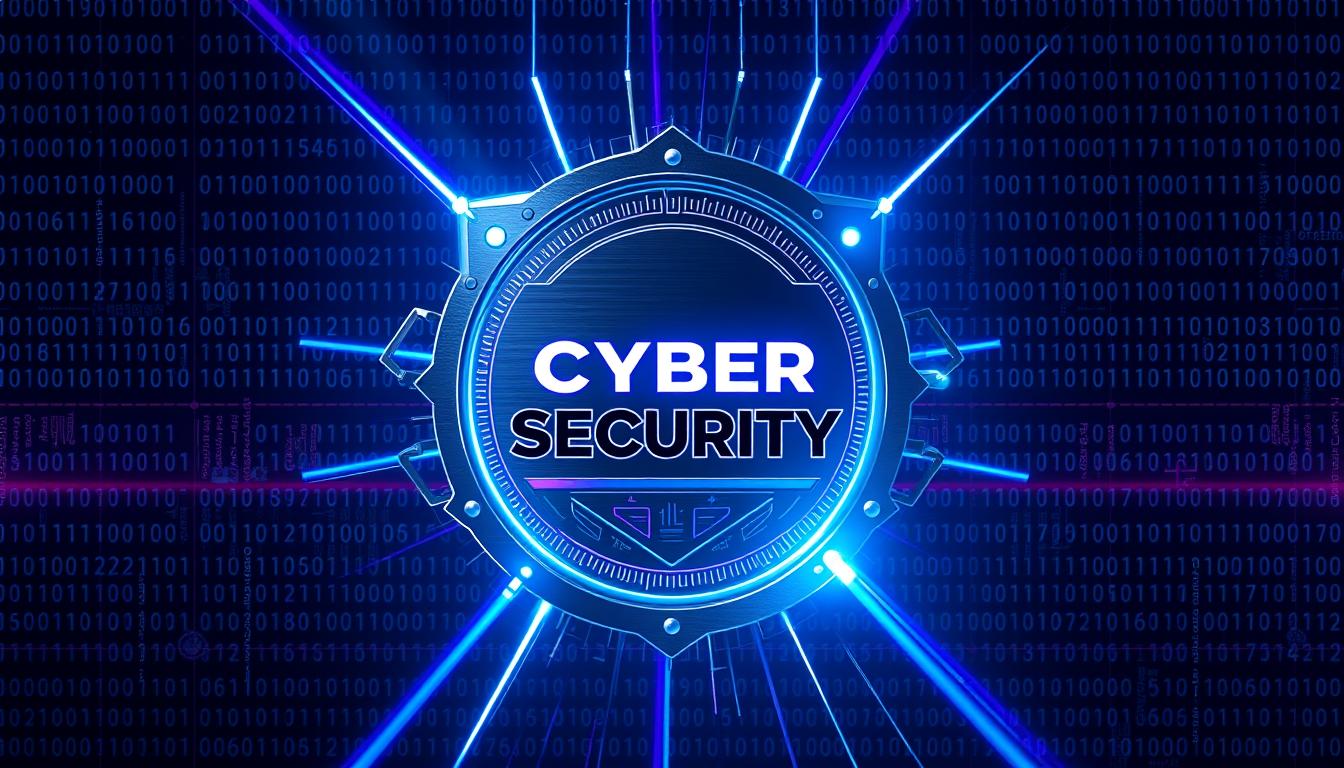Did you know that the IT industry is projected to grow by 13% through 2030, much faster than the average for all occupations? As technology continues to advance, the demand for skilled professionals is on the rise. If you’re considering a career in IT, you’ve likely come across two popular certifications: CompTIA A+ and Security+. But which one is right for you?
Both certifications are highly regarded in the industry, but they serve different purposes. CompTIA A+ is an entry-level certification that covers hardware and technical support, while Security+ focuses on cybersecurity fundamentals. Understanding the differences between these certifications is crucial to making an informed decision about your career path.
Key Takeaways
- Understand the key differences between CompTIA A+ and Security+ certifications
- Learn how each certification aligns with different IT career paths
- Discover the specific knowledge domains covered by each exam
- Determine which certification offers the best return on investment for your situation
- Gain insights into how employers value each certification
Understanding CompTIA Certifications
Understanding CompTIA certifications is crucial for anyone looking to build a successful career in the IT sector. CompTIA, or the Computing Technology Industry Association, is an internationally-recognized organization that certifies, educates, and connects IT professionals. Their certifications are vendor-neutral, meaning they are not limited to specific systems, platforms, or hardware manufacturers, thus increasing your options as a cyber security professional.
The Role of CompTIA in IT Certification
CompTIA stands as one of the most respected certification bodies in the IT industry, offering certifications that are recognized globally by employers across various sectors. By maintaining rigorous standards and regularly updating exam content to reflect current industry practices and technologies, CompTIA has established itself as a leading authority in IT certification. This ensures that IT professionals are equipped with the most relevant knowledge and skills.
Certification Pathways and Progression
The certification pathways offered by CompTIA follow a logical progression from foundational knowledge (like ITF+) to specialized expertise (like Security+, Network+, and beyond), allowing you to build your skills systematically. CompTIA’s Core certification track includes A+, Network+, and Security+, which together form a comprehensive foundation for various IT career paths. By understanding how these certifications relate to each other, you can create a strategic career development plan.
CompTIA A+ Certification Overview

CompTIA A+ is the entry-level certification that validates your IT skills and knowledge, serving as a foundation for your career in IT support.
The CompTIA A+ certification covers a broad range of topics essential for IT professionals, including hardware, networking, mobile devices, and operational procedures. This comprehensive coverage ensures that you are well-prepared for entry-level IT positions.
What Does CompTIA A+ Cover?
The CompTIA A+ exam encompasses various domains, including hardware, networking, and security. It validates your ability to troubleshoot and problem-solve across different devices and operating systems, demonstrating your knowledge and skills in IT fundamentals.
Exam Structure and Requirements
The CompTIA A+ certification consists of two separate exams: Core 1 (220-1001) and Core 2 (220-1002). Each exam includes up to 90 questions and has a duration of 90 minutes. The exam format includes multiple-choice, performance-based, and drag-and-drop questions.
Cost and Time Investment
The total cost for CompTIA A+ certification includes the exam fees, which are approximately $506 for both exams, as well as additional costs for study materials and potentially training courses. Most candidates spend between 2-4 months preparing for the A+ exams, depending on their existing knowledge and experience.
CompTIA Security+ Certification Overview

As a benchmark entry-level security certification, CompTIA Security+ equips you with the knowledge and skills needed to protect organizational assets. This certification is particularly valuable for those seeking roles as security specialists, security administrators, or systems administrators with security responsibilities.
What Does Security+ Cover?
The CompTIA Security+ certification covers essential cybersecurity concepts, including network security, compliance and operation security, threats and vulnerabilities, application security, data security, and identity management. The exam is based on the latest SY0-701 exam code and includes domains such as General Security Concepts, Threats, Vulnerabilities, and Mitigations, Security Architecture, Security Operations, Security Program Management, and Oversight.
Exam Structure and Requirements
The CompTIA Security+ exam includes a combination of multiple-choice questions and performance-based questions (PBQs), testing both your theoretical understanding and practical application of security concepts. You’ll need to answer at most 90 questions within 90 minutes, and the passing score is 750 on a scale of 100-900.
Cost and Time Investment
The total investment for Security+ includes the exam fee of approximately $404, plus study materials. Most candidates spend around 4-8 weeks preparing for the exam. With its comprehensive coverage of security concepts and alignment with Department of Defense Directive 8570.01-M requirements, Security+ is an excellent choice for those seeking a career in cybersecurity.
CompTIA A+ vs Security+: Which Is Best For You?

To determine whether CompTIA A+ or Security+ is best for you, it’s essential to examine their focus areas and difficulty levels. Both certifications are valuable in the IT industry, but they cater to different career paths and experience levels.
Key Differences in Focus Areas
The primary distinction between CompTIA A+ and Security+ lies in their focus areas. CompTIA A+ provides a broad foundation in IT support knowledge, covering hardware, software, and basic networking. In contrast, Security+ specializes in cybersecurity concepts and practices, making it ideal for those looking to specialize in security.
Your career goals should heavily influence your choice. If you’re interested in technical support, help desk, or field service technician roles, A+ is the ideal starting point. On the other hand, if you’re aiming for security-focused positions, Security+ is more suitable.
- A+ is geared towards IT beginners with little to no experience.
- Security+ is more appropriate for those with some IT knowledge looking to specialize in security.
- The content of A+ covers a wide range of IT topics, while Security+ delves deeper into security-specific knowledge.
Difficulty Comparison
The difficulty level of these certifications differs significantly. Security+ is generally considered more challenging due to its specialized focus and the assumption of existing networking knowledge. CompTIA recommends that Security+ candidates have CompTIA Network+ and two years of experience in IT administration with a security focus.
Which to Take First?
If you’re considering obtaining both certifications, it’s recommended to start with A+. A+ provides a foundational understanding of IT concepts, which can be beneficial before diving into the more specialized security topics covered in Security+. For those with prior IT experience, assessing your current knowledge level is crucial. You may choose to pursue Network+ before Security+, as it overlaps with Security+ content and can help reduce study time.
Ultimately, your choice between CompTIA A+ and Security+ should be guided by your career goals, current experience, and the specific skills you wish to acquire. By understanding the differences between these certifications, you can make an informed decision that aligns with your career aspirations.
Career Paths and Job Opportunities

As you consider CompTIA A+ and Security+ certifications, understanding the career paths they offer is crucial. Both certifications can significantly impact your professional journey in the IT industry, but they lead to different career trajectories.
Career Paths with CompTIA A+
CompTIA A+ certification opens doors to entry-level IT positions that focus on technical support and troubleshooting. With this certification, you can start in roles such as help desk technician, desktop support analyst, field service technician, or IT support specialist. These positions provide valuable hands-on experience with various hardware, software, and basic networking issues, forming the foundation for more advanced IT roles.
Key roles associated with CompTIA A+ include technical support specialist, field service technician, help desk technician, service desk analyst, data support technician, and desktop support administrator. These roles are fundamental in providing the initial layer of support in IT environments.
Career Paths with Security+
Security+ certification leads to more specialized security-focused positions. You can pursue roles such as security administrator, security specialist, security consultant, systems administrator with security responsibilities, or junior security analyst. Security+ is particularly valued in government positions and contractors due to its compliance with Department of Defense Directive 8570.01-M requirements.
Security professionals with Security+ certification are in high demand, as they possess the knowledge and skills required to handle security-related tasks and responsibilities. This certification is a stepping stone to more advanced cybersecurity roles.
Salary Expectations
Salary expectations vary significantly between CompTIA A+ and Security+ certified professionals. Entry-level A+ positions typically start between $40,000-$60,000 annually, while Security+ positions often command starting salaries between $60,000-$85,000, depending on location and additional experience. According to PayScale, CompTIA Security+ holders earn an average of $82k annually.
Preparation Resources and Study Tips

The right study resources and tips can make a significant difference in your CompTIA exam preparation. To achieve success in CompTIA A+ and Security+ certifications, it’s crucial to have a comprehensive study plan that includes a variety of study resources and practice materials.
Study Resources for CompTIA A+
For A+ preparation, you’ll benefit from a combination of comprehensive study guides, video courses, practice exams, and hands-on labs. Official CompTIA study materials provide the most exam-aligned content. However, many candidates find third-party resources like Professor Messer’s free YouTube videos, Mike Meyers’ courses, and Jason Dion’s practice exams equally valuable.
Study Resources for Security+
Security+ preparation resources should focus on both conceptual understanding and practical application. Materials that cover the latest threats, vulnerabilities, and security practices reflected in the current exam version are essential. Effective Security+ study materials include scenario-based questions that prepare you for the performance-based questions on the actual exam.
Effective Study Strategies
Creating a structured study schedule that allocates specific time to each exam domain based on your existing knowledge helps ensure comprehensive preparation. Practice exams are crucial for both certifications, as they help you identify knowledge gaps and build test-taking stamina. Hands-on practice, particularly for A+, reinforces theoretical knowledge with practical experience.
Certification Renewal and Continuing Education
Renewing your CompTIA A+ and Security+ certifications is essential to demonstrate your commitment to staying up-to-date with the latest technologies and security practices. Both certifications are part of CompTIA’s Continuing Education (CE) program, meaning they’re valid for three years before requiring renewal to maintain their active status.
Maintaining Your CompTIA A+ Certification
To renew your CompTIA A+ certification, you can earn Continuing Education Units (CEUs) through various activities. These include completing relevant training courses, attending industry conferences, publishing articles, or earning higher-level CompTIA certifications like Network+. You can also renew your A+ certification automatically by earning a higher-level CompTIA certification.
- Earn CEUs through CompTIA-approved activities
- Complete relevant training courses or attend industry conferences
- Publish articles or earn higher-level CompTIA certifications
Maintaining Your Security+ Certification
Security+ renewal follows a similar process, requiring 50 CEUs over the three-year certification period. You can earn these CEUs through advanced security training, work experience, industry participation, or by passing the current version of the exam. CompTIA’s CertMaster CE program offers a streamlined renewal option, allowing you to complete a self-paced online course that automatically renews your certification upon completion.
- Collect at least 50 CEUs through CompTIA-approved activities
- Upload sufficient proof of participation to your certification account
- Pay a renewal fee to complete the renewal process
Conclusion
The decision between CompTIA A+ and Security+ ultimately hinges on your career aspirations and current skill level. If you’re new to IT, starting with A+ provides a broad foundation for general IT support roles. In contrast, those with existing IT experience or a specific interest in cybersecurity may find Security+ to be the more efficient choice for entering the field of information security.
Choosing the right certification is just the first step. To truly excel in your IT career, you’ll need to supplement your certification with continuous learning, hands-on practice, and networking. The StationX Master’s Program offers comprehensive support, including real work experience, job guarantees, and hands-on training that bridges the gap between certification knowledge and practical application.
By joining the StationX community, you’ll gain access to 30,000+ courses and labs, mentorship, and career coaching to boost your career. Additionally, you’ll be able to engage with a thriving community of peers and professionals through exclusive events and networking opportunities. Whether you choose A+ or Security+, remember that your certification is just the beginning of your IT journey.
Take the next step by considering your career goals and the resources available to you. With the right training and support, you can launch a successful cybersecurity career and achieve your aspirations.
